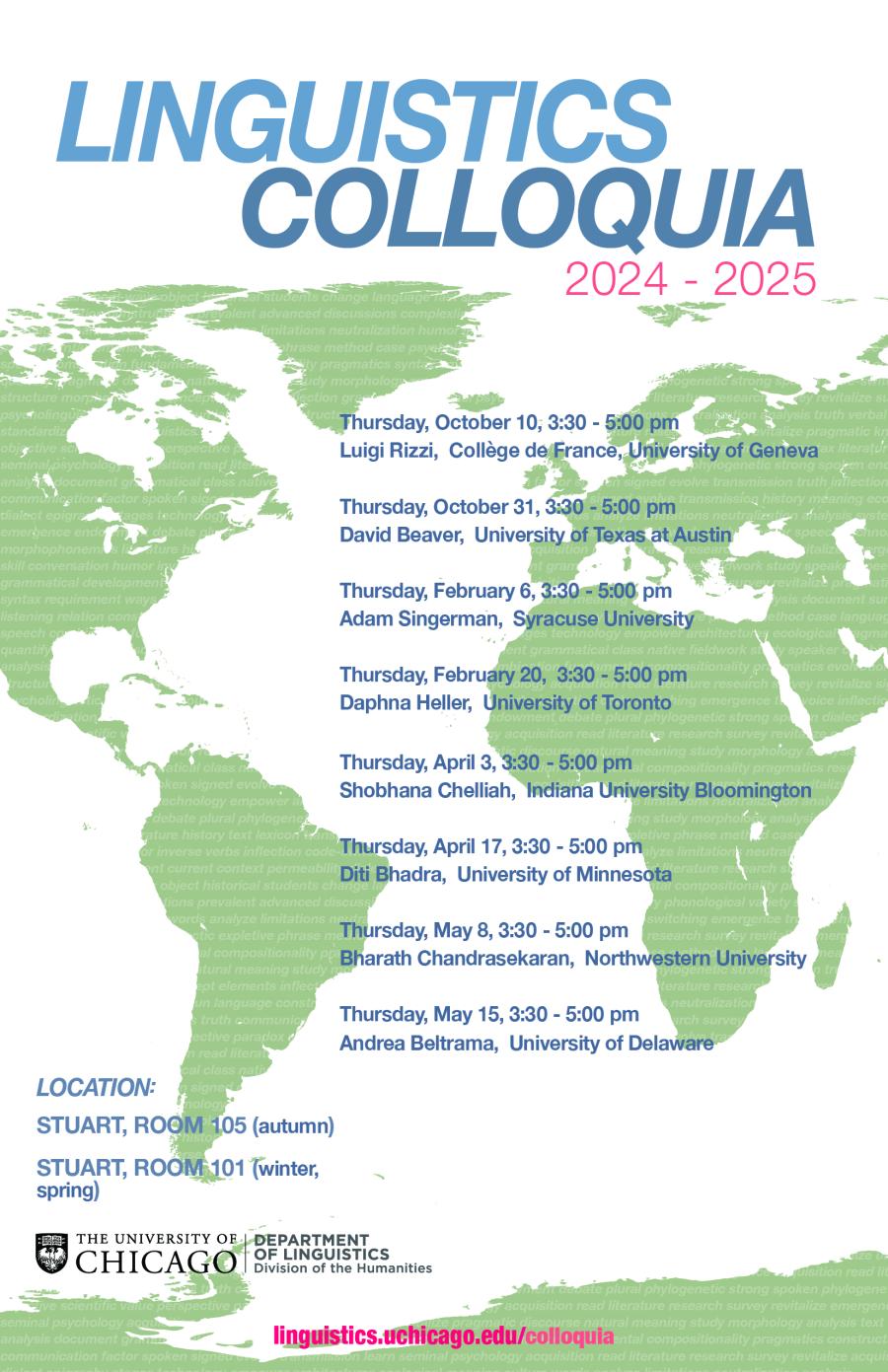Andrea Beltrama, University of Delaware
Nerds, dudes, pedantry and credibility. How social stereotypes help us navigate pragmatic reasoning.
Pragmatic reasoning has been shown to be shaped by different sources of social information -- e.g., politeness considerations (Bonnefon et al. 2009, Yoon et al. 2020, Mazzarella et al. 2018); affect (Bergen 2016); speaker-specific properties (Fairchild 2018; Mahler 2022), group membership (Kuperwasser et al. 2022). In this talk I take this line of work further by asking the following: how does the social stereotype that a speaker embodies shape different dimensions of meaning interpretation? Based on findings from two experiments, I'll present evidence that comprehenders interpret round numbers (e.g., $200) more strictly (Exp 1) – i.e., as referring to a more narrow range of values – when these are uttered by Nerdy characters, a type of speaker who is expected to describe things more precisely – as opposed to Chill ones – a type of speaker who is expected to describe things less precisely. At the same time, comprehenders judge imprecise descriptions uttered by Nerdy characters more leniently -- i.e, they take them to be correct more often than imprecise descriptions uttered by Chill speakers (Exp 2). These results suggest that stereotype-based social information affects two distinct levels of pragmatic reasoning: the computation of the circumstances that a description can be taken to represent; and the calibration of the degree of epistemic authority granted to someone who is potentially misrepresenting the relevant facts. Taken together, these results open a novel perspective on how the social and descriptive dimensions of meaning interact, highlighting the need to continue investigating the role of sociolinguistic information in semantic interpretation.

